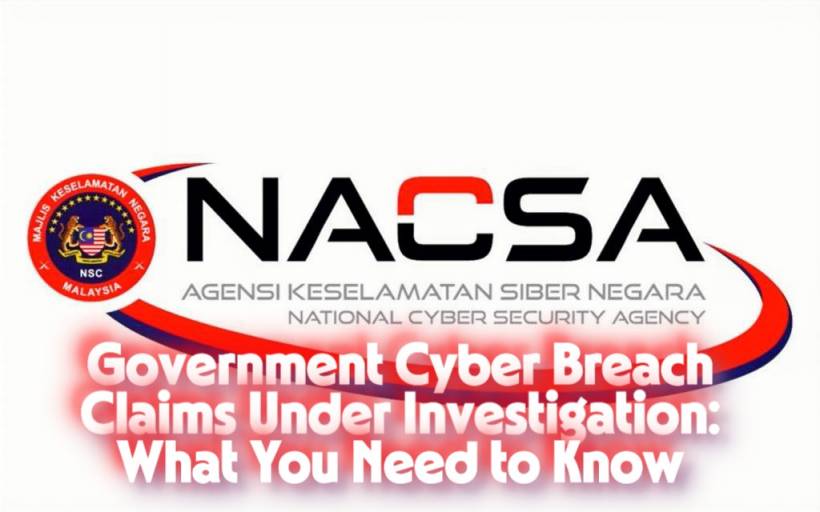Over the weekend, chatter in a hacker forum sparked concern across Malaysia's cybersecurity landscape. A user reportedly claimed to have breached over a dozen Malaysian government websites—offering live system access and sensitive data for sale. The asking price? A hefty USD 20,000 (roughly RM85,500), with Monero cryptocurrency as the preferred method of payment. Naturally, this raised more than a few eyebrows, and authorities were quick to respond.
Let's break down what's going on, what's being investigated, and what this means for national cybersecurity moving forward.
Alarming Claims Surface on Hacker Forum
The story began when an alleged hacker posted a listing online claiming they had breached several high-profile Malaysian government platforms. Among the named agencies were the National Registration Department (JPN), the MyGovernment portal, Radio Televisyen Malaysia (RTM), and various key ministries including Health, Defence, Foreign Affairs, and Higher Education.
The hacker didn't just boast about access—they allegedly offered credentials and data for sale. This included everything from VPN connection info, shell access, subdomain listings, internal file-sharing resources, to entire network and web databases.
NACSA Responds: Investigations Underway
In response, the National Cyber Security Agency (NACSA) issued a statement confirming they are aware of the post and are actively investigating the matter. A spokesperson told The Star that while the post has been escalated to relevant authorities for validation, the authenticity of the claims has yet to be confirmed.
Interestingly, NACSA highlighted that some of the information shared in the listing appears to be inaccurate. They also pointed out a common tactic among threat actors—recycling and repackaging old data to make it seem like a fresh breach.
CyberSecurity Malaysia Also Steps In
Backing up NACSA's investigation, CyberSecurity Malaysia (CSAM) also acknowledged the incident. They're currently working on a general advisory aimed at helping organizations understand how to prevent and mitigate potential data breaches.
While the technical details of the breach (if it happened at all) remain unclear, CSAM's proactive approach suggests a heightened state of alert in the wake of the claims.
Old Tactics, New Concerns
It's important to note that this wouldn't be the first time attackers tried to create panic using old or exaggerated data. Cybersecurity professionals often see threat actors rehash previously leaked credentials or outdated vulnerabilities to stir chaos—or worse, profit from recycled breaches.
Still, the possibility of any breach involving government data, no matter how credible, can't be taken lightly. Government systems house personal and sensitive information on millions of Malaysians, and ensuring their security is a matter of national interest.
What's Next?
For now, Malaysians are urged to stay calm and await official findings. The authorities have not confirmed whether any real compromise occurred. However, the fact that agencies like NACSA and CSAM are already on the case shows that the nation's cybersecurity response teams are treating the threat seriously.
It also serves as a stark reminder: government or not, no system is immune to attempted breaches. This incident—true or not—should be a catalyst for tighter digital security, better public awareness, and faster response coordination in the face of cyber threats.
Stay Informed, Stay Secure.
As the investigation continues, the best course of action for citizens and organizations alike is to keep systems updated, follow cybersecurity best practices, and rely on official sources for updates—not unverified online chatter.
